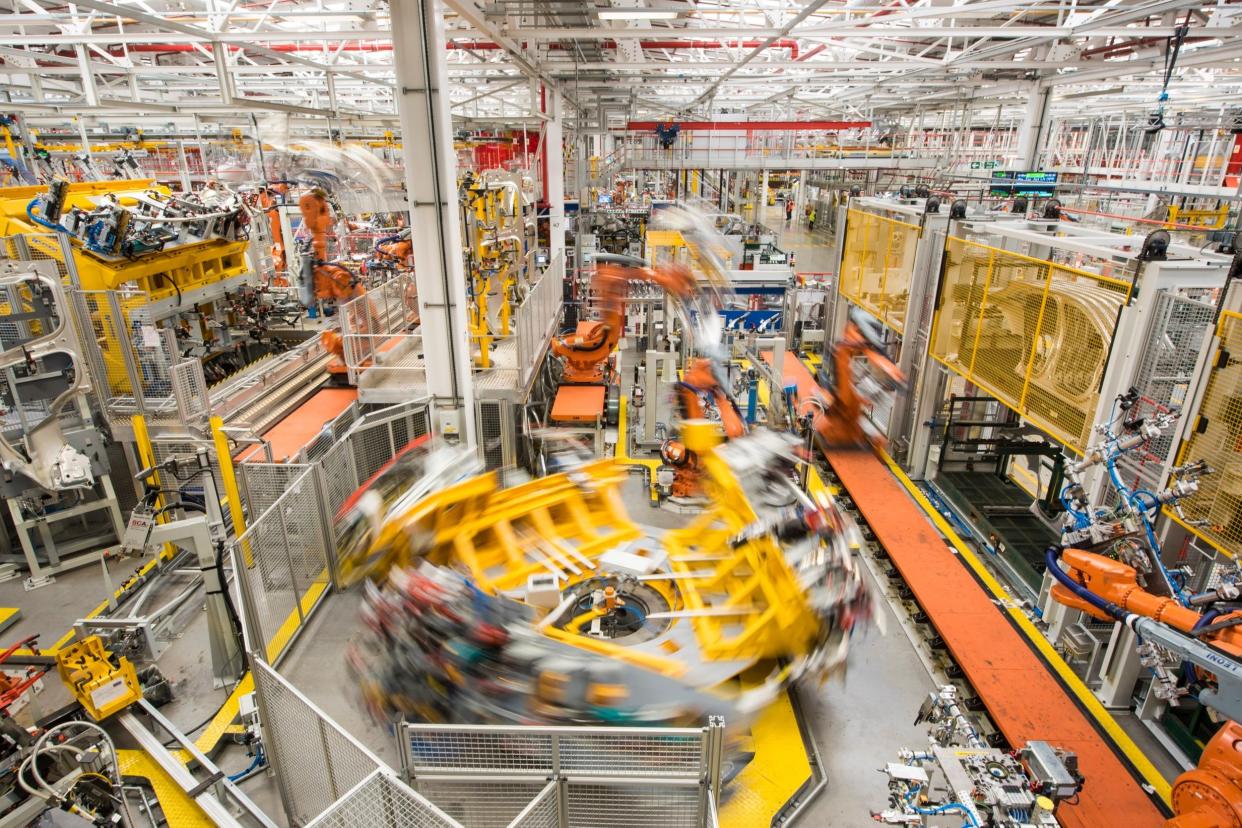What’s going on? I’m not sure even the Bank of England can tell us any more

Back in 1971, Marvin Gaye asked What’s Going On? The inspiration for one of the greatest tracks of all time — both a protest song and a paean to love — came two years earlier when Obie Benson, a member of the Four Tops, witnessed police brutality during an anti-war protest in Berkeley, California. Benson and Al Cleveland (of I Second That Emotion fame) wrote an early version of the song before Gaye added his magic touch.
Motown magic has subsequently spread to all sorts of strange places. Bizarrely, it appears recently to have infiltrated the corridors of the Bank of England. Sir Dave Ramsden, its deputy governor for markets and banking, asked the Marvin Gaye question in a speech on June 7.
Sadly, the speech didn’t quite exhibit the musical talents of Gaye’s original. It did, however, seek to address some of the key puzzles regarding UK economic performance. If employment is so strong, why is growth so weak? And, if unemployment is so low, why are wages so depressed? What, precisely, is going on?
Although Ramsden didn’t mention it, he might have pointed out that policy-makers were on the verge of having to address a similarly tricky issue when Gaye’s masterpiece was first released. As the Seventies progressed, only one economics question mattered. If growth and employment were so depressed, why was inflation so high?

It took a long time — and a lot of economic and political pain — before an answer was found. Jim Callaghan recognised the problem long before Margaret Thatcher got the keys to No 10 yet, as the Winter of Discontent so amply demonstrated, he lacked the political support to do much about it.
Today, Ramsden is, in his words, “actually reasonably confident about our understanding of what’s going on”. He thinks the weak numbers in the first quarter had a lot to do with the snow. He believes unemployment has fallen far enough to generate sustained upward pressure on wages. And he takes the view that, consistent with these developments, the Bank is likely to be raising interest rates later in the year.
Yet the economic data have subsequently offered decidedly mixed messages. The good news is that retail sales are surging (all those royal wedding mugs). In other parts of the economy, however, all is not well. Manufacturing output has fallen for three successive months. Construction output is down more than three per cent on the year. The trade deficit is widening. Export volumes are tumbling. The much-heralded acceleration in wages, meanwhile, appears to have hit a bit of a brick wall.
Put another way, even as late snow has given way to early sun, the UK economic climate remains chilly. And the labour market is still full of inconsistencies.
So let me offer my own interpretation of what’s going on.
The first issue is, whether we like it or not, Brexit. Before the 2016 referendum, the UK was a perennial economic over-achiever within the European Union. More recently, however, the roles have reversed. At the beginning of 2018, UK GDP rose a mere 0.1 per cent, a quarter of the pace managed by the EU as a whole. And, although some — the Bank included — will blame the weather for this lamentable performance, the truth is the rot set in earlier: the last occasion when the UK grew more quickly than the EU was the third quarter of 2016.
"If employment is so strong, why is growth so weak? And, if unemployment is so low, why are wages so depressed?"
The second issue is a loss of momentum in the eurozone itself. Last year saw rapid economic expansion on the other side of the Channel. This year, the eurozone has lost its mojo. Sadly for the UK, an ebbing tide exposes the least seaworthy vessels. The uncertainties of Brexit have left the UK short of investment and, most obviously, short of foreign investors.
Once, the UK was the “go to” country for non-EU companies hoping to be part of the single market. No more. Worse, UK firms are now heading elsewhere: the Land-Rover Discovery is to be made in Slovakia.
The third issue is technology (and, alongside it, globalisation). This goes to the heart of the labour market conundrum. How can wages be falling when unemployment is so low? Well, it may be that unemployment is so low precisely because wages keep falling.
Thanks in part to zero-hours contracts and the “gig economy”, employers can increasingly hire workers by the task or the hour. There is no need for a “social contract” between employer and employee. That, in turn, means no pension, no private healthcare, no redundancy protection and no union. The cost to employers of hiring workers falls dramatically.
Workers who, previously, were simply not productive enough to find a job can now be gainfully employed — at lower than average wages — for a few hours every now and then. Their “success” may explain why both unemployment and wages are low simultaneously.
And then, finally, there’s the Bank’s own role in this disappointing story. Low interest rates and the magical process otherwise known as quantitative easing may have helped stabilise the economy in the immediate aftermath of the global financial crisis but, a decade later, the UK economy may simply be hooked on easy money drugs.
One side effect is the survival of so-called “zombie companies”, enterprises that would either have shrunk or shut down altogether in a less supportive monetary environment. Their survival, in turn, makes it less likely that new, more dynamic, companies can easily emerge. The result? Weaker productivity gains and hence lower economic growth.
The Bank likes to believe that, even if the recent past has been a bit weird, the future will be associated with the re-establishment of tried and tested economic rules. I’m not so sure. The combined impact of Brexit, technology and zombies may mean that the past is another country. That increases the chances that the Bank may be misreading the economic tea leaves.
I doubt, however, that the Bank will ever admit it no longer knows what’s going on.
Stephen King is HSBC’s senior economic adviser and the author of Grave New World (Yale).

 Yahoo News
Yahoo News 
